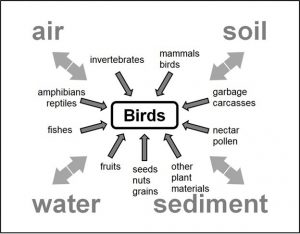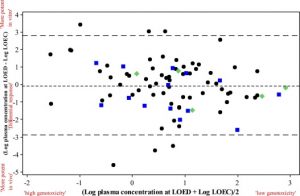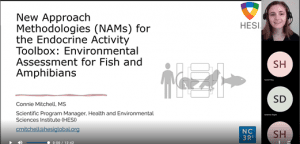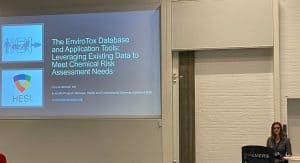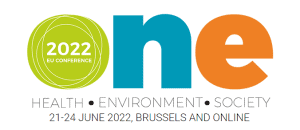2022 HESI Annual Meeting Recap
Dr. Syril Pettit kicking off the meeting
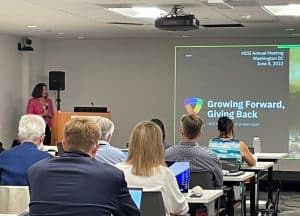
HESI successfully held its first hybrid Annual Meeting on June 8-9 with it’s largest number of registrants to date! 260 people registered for the meeting with 50 in-person attendees and over 200 attending virtually from 24 countries around the globe. The meeting featured a powerful and personal talk by Dr. Courtney Horvath about the need for more pediatric cancer research (see above story) as well as a talk by Dr. Kenneth Olden, the inaugural HESI Innovation prize winner who challenged us all to address the impact of social determinants of health. We celebrated our global partnerships with talks highlighting HESI’s Global Risk Assessment Training Center and Propagate Network and heard from three HESI THRIVE 2021 Grant Winners. Sessions on Error Corrected Sequencing and Artificial Intelligence highlighted HESI’s role in cutting edge science and technology. The full meeting program and list of speakers can be found here.
If you were unable to attend the 2022 HESI Annual Meeting and would like to learn more about scientific programming at HESI, click here.
Announcing HESI’s 2022-2023 Board of Trustees
Dr. Ruth Roberts, Dr. Syril Pettit and Dr. Anthony Holmes
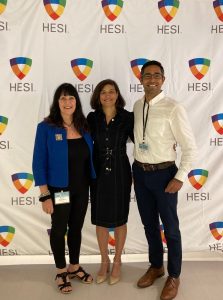
We are pleased to announce the results of the 2022 HESI Board of Trustees and Emerging Issues Committee vote! The below slate has been unanimously elected! Thank you to everyone who participated in the voting process and a big congratulations to our new and returning Trustees and EIC members!
Current list of the Board of Trustees is available here
Current list of the Emerging Issues Committee is available here
*designates re-nominees
BoT Nominees
Dale J. Hoff, USEPA
Adam Lillicrap, NIVA
Hans Sanderson, Aarhus University
Myrtle Davis, Bristol Myers Squibb
Nina Hallmark, Bayer
Jean-Pierre Valentin, UCB
Anthony Holmes, NC3Rs*
Martin van den Berg, Utrecht University*
Gary Minsavage, ExxonMobil*
Graeme Moffat, Amgen*
Ruth Roberts, ApconiX, Ltd.*
Pamela Spencer, ANGUS Chemical Company*
Douglas Wolf, Syngenta*
EIC Nominees
Jacquelin MacDonald Gibson, Indiana University
Misti Ushio, ValoHealth
Suzanne Fitzpatrick, FDA*
Anthony Bahinski, Vivodyne Inc.*
